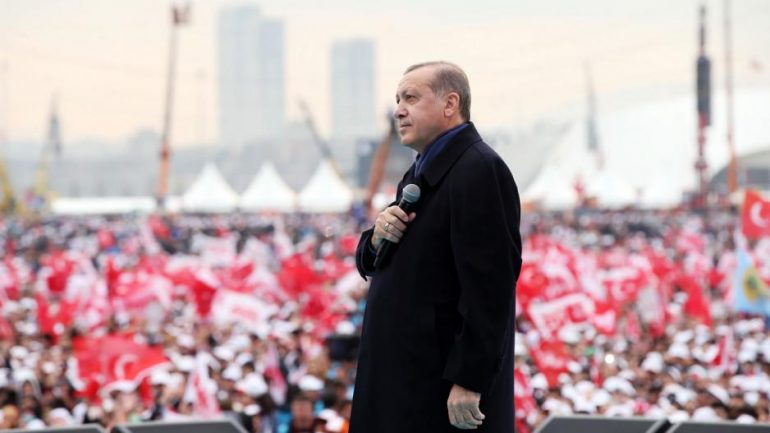Opponents and supporters of Turkish President Recep Tayyip Erdogan must agree on one thing: As things stand, the opposition is incapable of defeating him, according to an analysis by the German newspaper Die Zeit. Since Erdogan took power with the Islamist-nationalist AKP in 2002, his leader has not lost an election. There is no doubt that under his leadership Turkey experienced great economic prosperity. Can the opposition achieve anything today in the early elections on June 24 ?, the newspaper wonders.
After so many years in power, the Turkish President proves once again that he has smart tactics with this political move. First, the presidential and parliamentary elections will be held simultaneously, at a time when only Erdogan today can show the Turks a growing economy. According to experts, the situation could worsen significantly next year: Turkey has a huge current account deficit and the Turkish pound has depreciated. In addition, many of Turkey's key Western allies have distanced themselves from Erdogan's government as the Turkish president continues to impose a state of emergency and rule Turkey authoritarianly after a failed coup attempt in 2016.
The short period of the election campaign until June leaves the opposition little time for its plans. Can Erdogan's calculations fall out this time? Because the opposition parties seem to be talking at least, something completely unexpected and new to them: cooperation.
Co-operation seems to be pursued by the largest opposition force: the center-left Republican People's Party (CHP). This party represents the old secular regime in Turkey. With 134 members in parliament, it is the main opposition in Erdogan's AKP. Its 69-year-old president, Kemal Kilicdaroglu, is an intelligent Social Democrat politician, but he is very weak against Erdogan and has no chance.
The second largest opposition party, the pro-Kurdish HDP, has been severely damaged by the charismatic president of Selahattin Demirtas. The left HDP can win 10-12% of the vote. It could get even more votes but many Turks accuse the HDP of being the PKK's long arm.
A new party raises hopes
According to Turkish analysts, Erdogan, with his alliance with the far-right nationalist MHP party of Devlet Bahceli, is claiming 50% of the vote. But Erdogan's opponents seem to be hoping for a new party: the Ayi Parti ("Good Party"), which was founded by former Bahcelistist MIR rival Meral Aksener. She is a conservative-nationalist politician who can speak just as passionately to crowds as Erdogan. Unlike the Islamic AKP, however, it promotes the secular ideology of the state's founder, Kemal Ataturk. At the same time, Aksener occasionally does not hesitate to be photographed with a handkerchief while visiting a mosque. This is also very popular with religious voters. Voters who do not see a way out of the Republican People's Party or the pro-Kurdish HDP will have an alternative with the Good Party for the first time. In fact, because Aksener did not have MPs, several politicians of the Republican People's Party joined the "Good Party", in an excellent maneuver even for the Turkish models.
Many Turkish analysts, however, estimated that the one who could question Erdogan's victory would be former President Abdullah Gul, but ruled out such a move, saying support for his candidacy was not strong enough.
Erdogan will make every effort to get more than 50% of the vote on June 24 and avoid a run-off in which the opposition could theoretically concentrate its votes on one rival candidate.
At the moment it seems that the AKP, CHP,? Yi Party and HDP will have their own candidate each. In case the individual candidates have no luck in the first round and the Republican People's Party candidate is likely to come in second with around 20% in the hope that Erdogan will not get 50% in the first round. He can then hope that the other opposition parties will call on their constituents to support the CHP candidate.
But one thing is certain: 16 years after Erdogan came to power, Turkey is holding elections in which, without a candidate like Abdullah Gul, there will be no real alternative for the disappointed AKP voters. Religious voters, even if they have doubts, will stay with the President instead of choosing to return to the old secular regime. In Turkey, probably no politician understood this, as Erdogan did.
